Thought for the Day – 23 April – The Spiritual Combat (1589) – Dom Lorenzo Scupoli OSM (c1530-1610)
“None shall be crowned who has not fought well.” 2 Tim 2: 5
LII: … The Benefits derived from Meditations on the Cross
and the Imitation of the Virtues of Christ Crucified
“GREAT are the ADVANTAGES to be derived from meditating on the Cross, the first of which is, not only a detestation of past sins but also, the firm resolution to fight against our ever-present disorderly appetites which, Crucified our Saviour.
The second advantage is, the forgiveness of sins, obtained from Jesus Crucified and, a wholesome self-contempt which inspires us, forever to forsake offending Him and continually to love and serve Him with all our heart, in acknowledgment of that which He suffered for our sakes.
The third, is the unceasing labour with which we root out all depraved habits, however trivial they may appear.
The fourth consists in our ardent efforts to imitate our Divine Master, Who died, not only to expiate our sins but, to bequeath to us, the sublime example of a life of sanctity and perfection.
The following method of meditation will be highly serviceable, assuming, as I do, that you particularly wish to imitate the patience of your Saviour in carrying your crosses.
Consider well these several points:
What the Soul of Christ suffered for God.
What God did for the Soul of Jesus.
What the Soul of Jesus did, for itself and its Body.
What Jesus did for us.
What we ought to do for Jesus.
- Consider in the first place that the Soul of Jesus engulfed in the ocean of Divinity, contemplated that Infinite and Incomprehensible Being, before Whom, even the most exalted of creatures is utterly insignificant – contemplated, I say, in a state so debased as to suffer the vilest indignities of ungrateful man, without the least diminution of its essential glory and splendour.
And from the depths of its suffering, the Soul of Christ adored its Sovereign Majesty, giving it myriad thanks and accepting all for its sake. - Behold, on the other hand, what God bestowed on the Soul of Jesus – consider that the Divine Will decreed the scourgings, spittle, blasphemies, buffetings, crown of thorns, for love of us and the crucifixion which were meted out to Jesus, the Only and Beloved Son of God.
See with what delight God, knowing the admirable end to which it was all directed, beheld His Divine Son, loaded with infamy and overwhelmed with affliction. - Contemplate next, the Soul of Jesus and observe with what alacrity it submitted itself to the Will of God, either because of the immensity of its Divine Perfection, or the Infinity of Divine Favour bestowed upon it.
Who can describe the ardent affection of this Soul for crosses?
This was a Soul which sought, even new ways of suffering,and failing in this, abandoned itself and the innocent Body to the mercy of miscreants and the powers of Hell. - Turn, then, your eyes to Jesus, Who, from the midst of His Agony, addresses you in this affectionate manner:
“See to what depths of misery I am reduced by thy ungovernable will, which refuses the least constraint in compliance with mine.
Behold the horrible pains I endure, with no other purpose than to teach thee a lesson of patience.
And let me persuade you, by all these sufferings, to accept with resignation, this cross I here present and those which I shall send in the future.
Surrender your reputation to calumny and your body to the fury of the persecutors whom I shall choose for your trial, however vile and inhuman they may be.
Oh, that you didst know what delight your patience and resignation afford me!
But then, how can you be ignorant of it, when you behold these wounds received to purchase for you, those virtues with which I would adorn your soul, more dear to me, than life itself?
If I have suffered this debasement for you, can you not bear a light affliction, in order to lessen My Agony to some degree?
Can you refuse to heal those Wounds, I have received, through your impatience, Wounds more cruel to me than physical anguish?” - Consider who it is who speaks thus to you – consider that it is Jesus Christ, the King of Glory, true God and true Man.
Consider too, the magnitude of His torments and humiliations, greater than that deserved by the most vicious of criminals. Be
astonished to behold Him in the midst of these agonies, not only firm and resolute but even replenished with joy, as if the day of His Passion was a day of triumph.
Just as a few drops of water sprinkled upon a flame, only adds a fresh intensity to its glow, so did His torments, embraced in a charity which made the burden seem light, serve to augment his joy and desire of suffering still greater affliction.
Moreover, reflect that throughout His entire life, He was motivated, not by compulsion or self-interest but rather, by pure love alone that you may learn from Him, the manner of practicing patience.
Endeavour, therefore, to attain a perfect knowledge of what He demands of you and consider His delight at your practice of patience. Then form an ardent desire of carrying this cross and heavier ones, not only with patience but with joy, that you may more exactly imitate Christ Crucified and render yourself more acceptable to Him!
Picture to yourself all the torments and indignities of His Passion and amazed at His constancy, blush at your own weakness.
Look upon your sufferings as merely imaginative, when compared to His and regard your patience as not even the faintest anticipation of His.
Dread nothing so much as an unwillingness to suffer for your Saviour, rejecting such unwillingness as a suggestion from Hell.
Consider Jesus on the Cross as you would a devout book, worthy of your unceasing study and, by which you may learn the practice of the most heroic virtues.
This is the book which may truly be called the “Book of Life” [Apocalypse, III, 5], which, at once enlightens the mind by its doctrines and inflames the will by its examples.
The world is full of books but were it possible for man to read them all, he would never be so well instructed, to hate vice and embrace virtue, as by contemplating a Crucified God!
But remember that there are those who spend hours lamenting the Passion of our Lord and admiring His patience and yet, on the first occasion, betray as great an impatience, in suffering, as if they had never thought of the Cross.
Such men are like untried soldiers, who, in their barracks breathe nothing but conquest but on the first appearance of the enemy, beat
a hasty and inglorious retreat!
What is more despicable after considering, admiring and extolling the virtues of our Redeemer, than to forget them all, in an instant, when an opportunity of practicing them presents itself!”












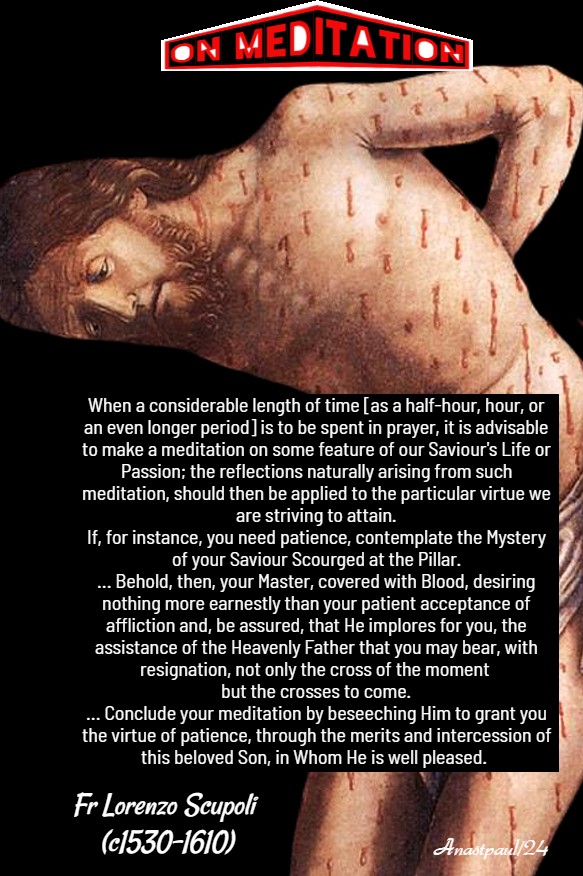




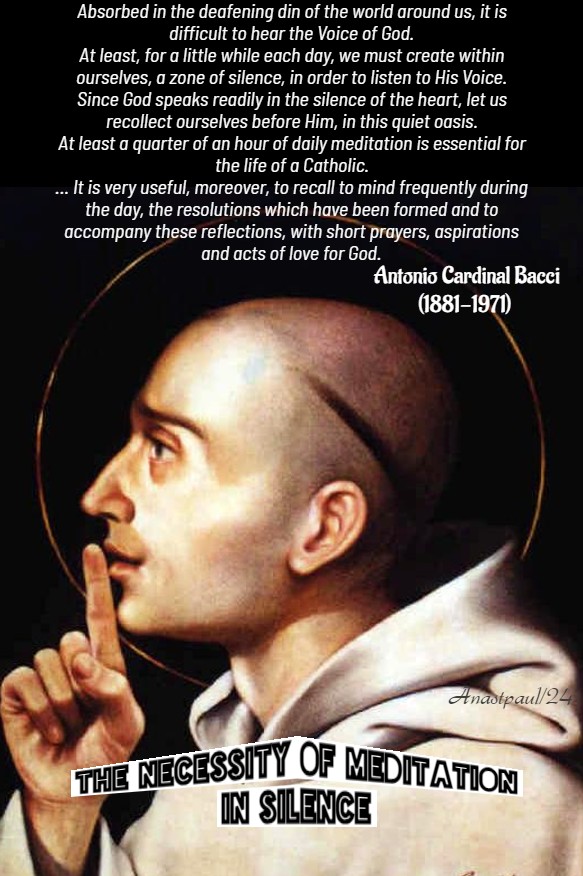


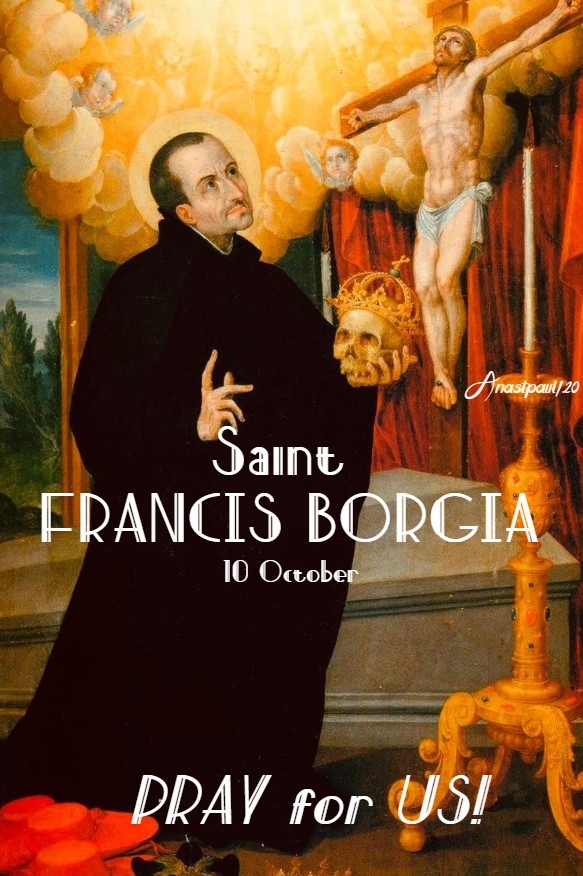

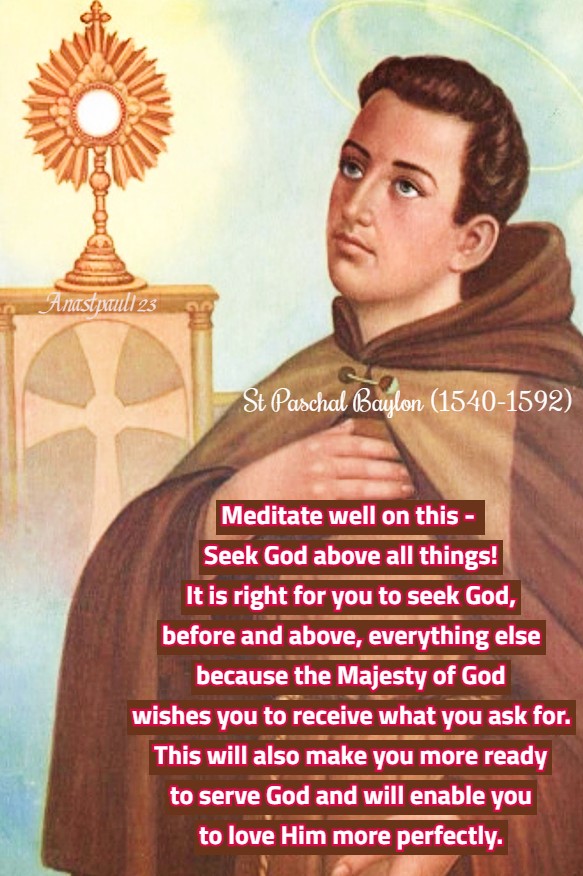





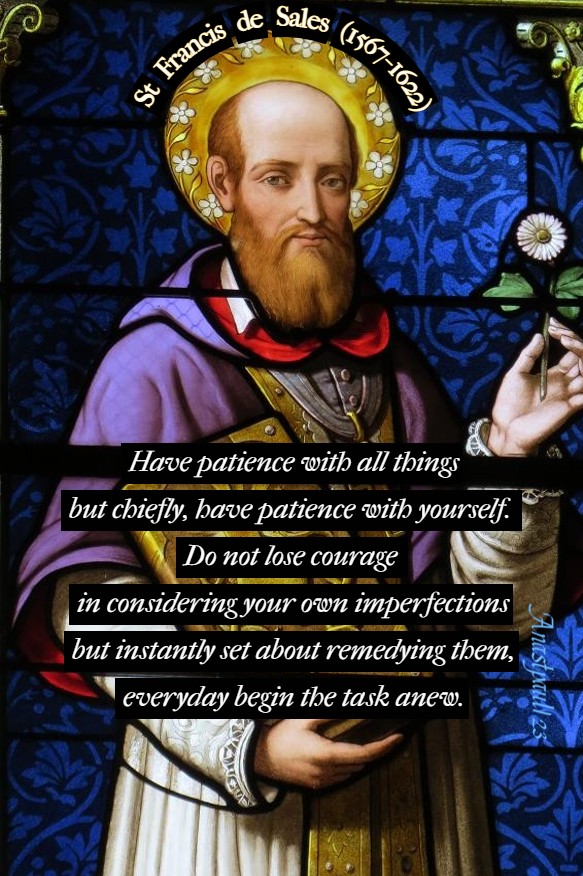






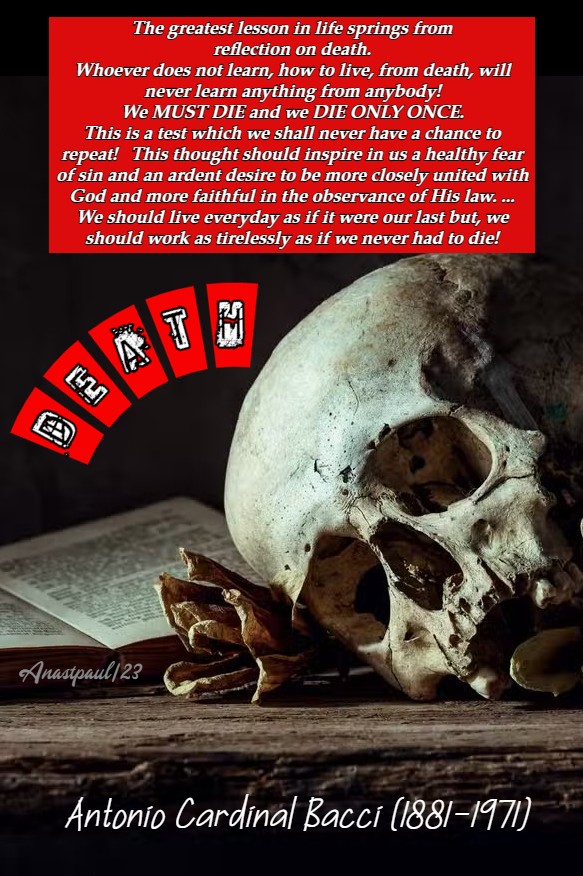






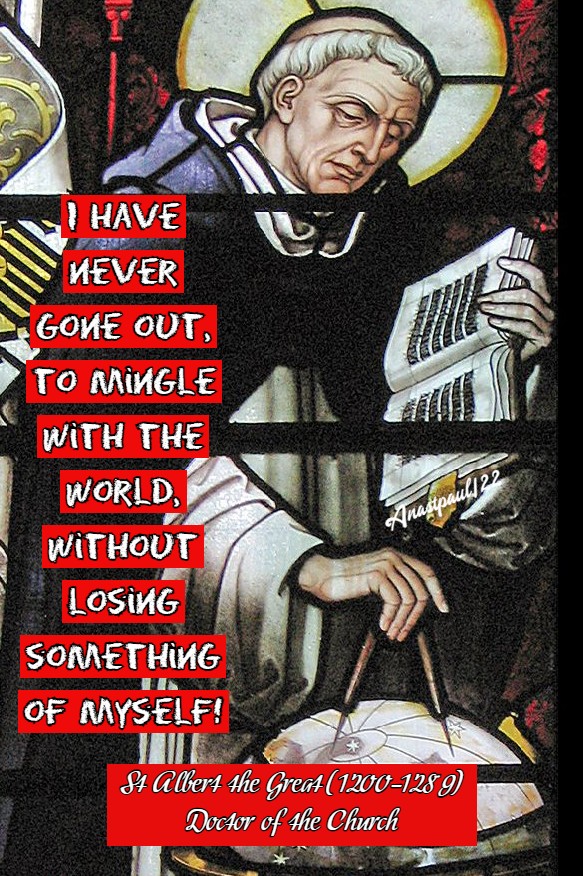





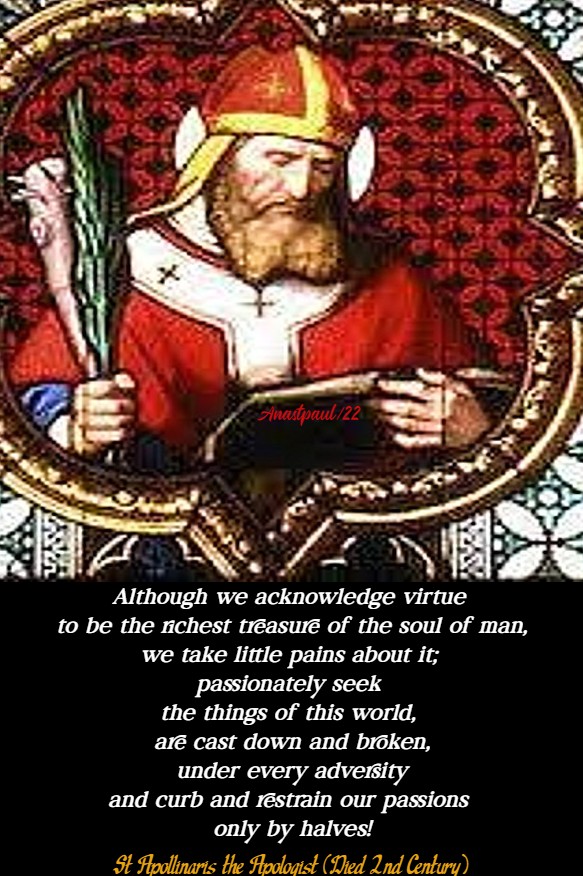







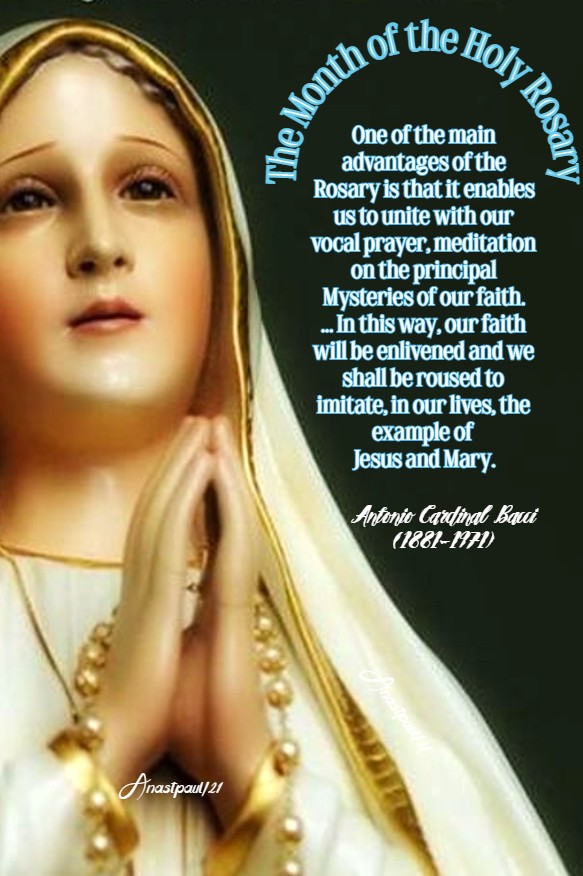












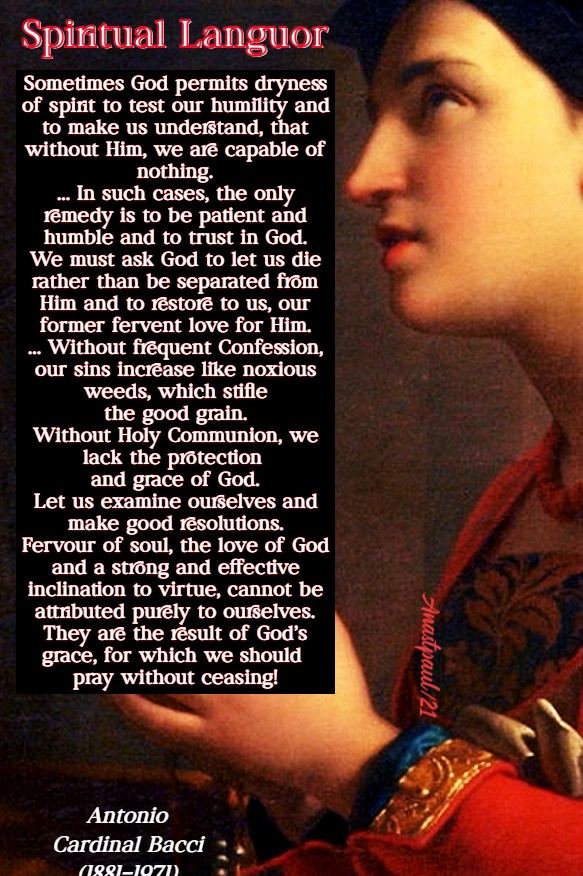










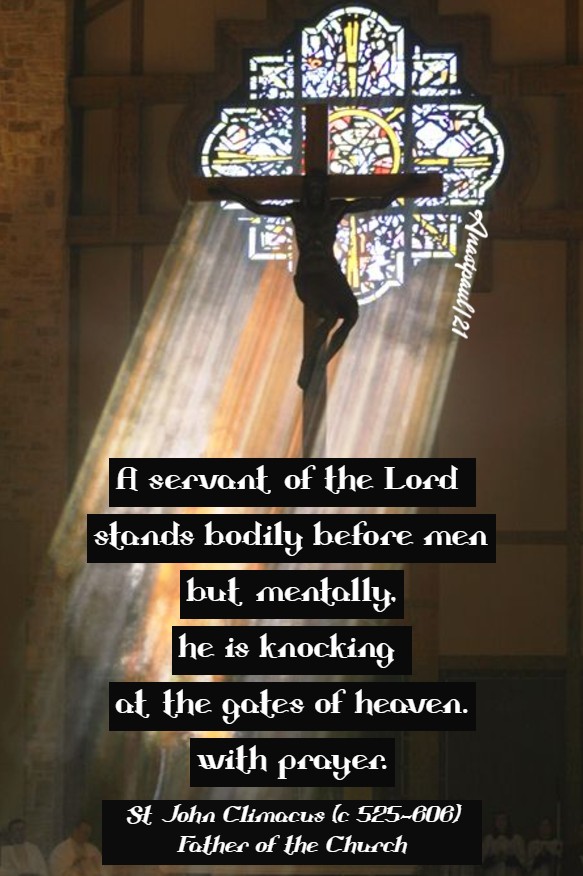




You must be logged in to post a comment.